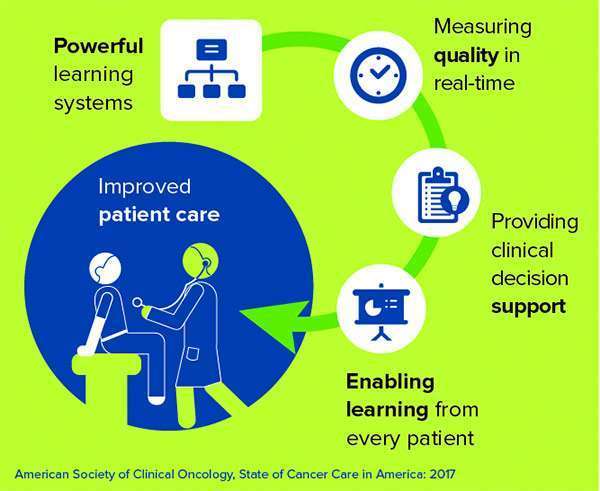Last year, a staggering 1.7 million Americans were diagnosed with cancer – and more than 15.5 million people were living with the disease in the United States, as reported by the State of Cancer Care in America: 2017 report released by the American Society of Clinical Oncology (ASCO) today.
Cancer is now the leading cause of death in 22 U.S. states, and although pancreatic cancer remains the ninth most commonly diagnosed cancer in women and 11th in men, it is the third leading cause of cancer-related death overall in our country.
“We applaud ASCO for their thorough investigation of progress and challenges in cancer care in America,” said Julie Fleshman, JD, MBA, Pancreatic Cancer Action Network president and CEO. “We also note that the report calls out pancreatic cancer and other of the deadliest cancers as those for which the rate of progress has not matched other cancer types.
“We are working diligently to change those statistics and double pancreatic cancer survival by 2020.”
 In the report, ASCO lists seven components that make up their “framework for patient-centered, evidence-based, high-quality cancer care.”
In the report, ASCO lists seven components that make up their “framework for patient-centered, evidence-based, high-quality cancer care.”
No. 1 on that list is engaged patients.
For patients and their loved ones facing pancreatic cancer, our PanCAN Patient Services provides information, resources and hope to help patients navigate their disease, treatment options and supportive care.
“We provide patients the tools to feel empowered,” commented Fleshman. “We strongly recommend that patients discuss their treatment goals with their healthcare team and know all of their options at every stage of their disease.”
The framework also includes robust research efforts to develop new and more effective therapies – through evidence-based clinical trials. Our PanCAN Patient Services Case Managers can guide callers through a personalized pancreatic cancer clinical trial search, or patients, caregivers and healthcare professionals can search our comprehensive database using our online Clinical Trial Finder tool.
Finally, ASCO’s report emphasizes the need for translating evidence into clinical practice – and learning from each and every patient.
Our Patient Registry facilitates collection of clinical and outcomes data from patients diagnosed with pancreatic cancer in the U.S. and throughout the world. Pooling data will uncover meaningful trends and help define best practices moving forward. This strategy is in perfect alliance with ASCO’s recommendation that: “all relevant stakeholders should prioritize the collection of patient-reported outcomes.”
Overall, ASCO’s State of Cancer Care in America: 2017 report reinforces that our comprehensive strategy of privately funding and advocating for greater federal resources for pancreatic cancer research, providing leading-edge patient services and clinical initiatives and raising awareness nationwide is putting us on the right path to improve patient outcomes and double pancreatic cancer survival by 2020.














